Talk about traveling in style: Passengers flying within the State of Oregon may now carry small amounts of marijuana with them.
 Officials at Portland International Airport announced in July that they would allow travelers to carry up to 1 ounce of cannabis when flying to another airport in Oregon. It is currently legal statewide to carry up to 1 ounce in public.
Officials at Portland International Airport announced in July that they would allow travelers to carry up to 1 ounce of cannabis when flying to another airport in Oregon. It is currently legal statewide to carry up to 1 ounce in public.
Even so, the airport was under no legal obligation to allow passengers carrying cannabis. Airports are typically municipal property subject to special security rules.
In Colorado, for example, marijuana is banned at all public airports. That means only passengers leaving private airports may carry the drug, and then only on flights that don’t cross state lines.
The new rule in Portland took effect toward the end of July. The city’s airport is the largest in the state and one of the busiest on the West Coast.
Marijuana cannot cross state lines
It remains illegal to attempt to fly with marijuana on any flight leaving Oregon. The drug is legal in Washington State, Colorado, Alaska, and Washington, D.C., but it is banned by federal laws, and transport across state lines is treated as criminal trafficking.
“For those flying to other cities in the state of Oregon, traveling with marijuana is allowable as long as that passenger meets all the other legal requirements of the state law,” said Steve Johnson, spokesman for Port of Portland, which owns and runs the airport.
Passengers traveling from Portland are free to carry cannabis through security checkpoints if they’re booked on in-state flights, Johnson said. If the cannabis is spotted by TSA agents, they will check boarding passes to ensure the drug won’t leave Oregon, and they will make sure passengers don’t try to carry more than 1 ounce.
It’s usually quite easy to walk through security carrying small amounts of marijuana, since the TSA is focused on explosives and other terrorist threats, not drugs. That said, getting caught with marijuana at an airport where it is prohibited can lead to arrest by local police.
Fully legal states have varying policies
 Airports in Colorado already offer so-called “amnesty boxes” where travelers can legally dispose of cannabis before passing through security. Marijuana is effectively banned on all commercial flights originating in that state.
Airports in Colorado already offer so-called “amnesty boxes” where travelers can legally dispose of cannabis before passing through security. Marijuana is effectively banned on all commercial flights originating in that state.
Washington State, by comparison, allows cannabis to leave at least one facility, Seattle-Tacoma International Airport, as long as it is within the state’s legal limits.
Alaska has yet to decide whether to allow traveling with marijuana. Given the state’s sheer size and its sparse population, barring the drug on in-state flights could make it harder to get.
Alaska remains undecided
“It would premature for the airport to put forth any policies or procedures until we know what rules we’re supposed to be talking about,” said John Parrot, manager of Ted Stevens Anchorage International Airport in Alaska.
Passengers in Oregon will have to dispose of their marijuana before flying out of state. Those who bring too much to the airport must throw away anything beyond the 1 ounce limit. Travelers caught at security with too much marijuana could face both state and federal charges.
Oregon voters legalized cannabis in the November 2014 elections, as did Alaska and the District of Columbia. Washington State and Colorado legalized in 2012, the first states to do so.
Though the announcement is good news for Oregonians, Coloradans and others will likely have to live with current policies, at least in the foreseeable future.
“We don’t have any plans to reevaluate our marijuana policy,” said Laura Cole, spokeswoman for Denver International Airport.
Friendly Skies Even Friendlier in Oregon
 A new study, published in The American Journal of Drug and Alcohol Abuse in July,
A new study, published in The American Journal of Drug and Alcohol Abuse in July,  Among other realities, changing perceptions toward marijuana will almost certainly translate to further reform down the road. Cannabis is now legal for any use in four states and the District of Columbia; with young voters on board, that number is only likely to grow.
Among other realities, changing perceptions toward marijuana will almost certainly translate to further reform down the road. Cannabis is now legal for any use in four states and the District of Columbia; with young voters on board, that number is only likely to grow.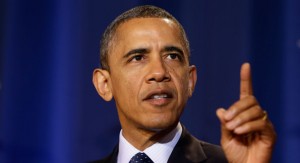 Obama signed commutation orders for 46 federal inmates, all serving long sentences for non-violent
Obama signed commutation orders for 46 federal inmates, all serving long sentences for non-violent  Marijuana advocates believe mass amnesty may eventually be necessary,
Marijuana advocates believe mass amnesty may eventually be necessary,  The officers’ antics were caught on a secret video camera, even after they dismantled the store’s official surveillance system. One officer joked about a worker’s disability, threatening to kick her in the stump of her amputated leg.
The officers’ antics were caught on a secret video camera, even after they dismantled the store’s official surveillance system. One officer joked about a worker’s disability, threatening to kick her in the stump of her amputated leg. The raid occurred last month at the Sky High Collective of Santa Ana. The city bans medical marijuana dispensaries, and Sky High allegedly operated in violation of that law.
The raid occurred last month at the Sky High Collective of Santa Ana. The city bans medical marijuana dispensaries, and Sky High allegedly operated in violation of that law. Christopher Stoddard was arrested in July outside a shopping mall in Bradenton, Fla., where he was allegedly trying to dump
Christopher Stoddard was arrested in July outside a shopping mall in Bradenton, Fla., where he was allegedly trying to dump 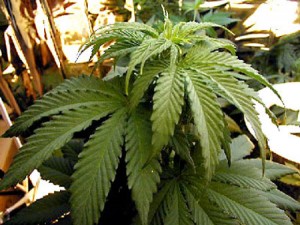 Stoddard could face up to five years in prison on the cultivation charge alone, with an even heavier sentence if more than 25 plants were involved. Police didn’t say how much marijuana they found at Stoddard’s home.
Stoddard could face up to five years in prison on the cultivation charge alone, with an even heavier sentence if more than 25 plants were involved. Police didn’t say how much marijuana they found at Stoddard’s home. A 45-year-old Maryland woman was arrested in early July after
A 45-year-old Maryland woman was arrested in early July after  Medical cannabis is legal in Maryland, and the drug has been decriminalized for recreation. But
Medical cannabis is legal in Maryland, and the drug has been decriminalized for recreation. But  The bill, introduced in the U.S. Senate by three Democratic sponsors and two Republicans, would
The bill, introduced in the U.S. Senate by three Democratic sponsors and two Republicans, would  Colorado Gov. John Hickenlooper called the bill a step in the right direction. Though initially opposed to legalization in his state, Hickenlooper was instrumental in the law’s successful roll-out.
Colorado Gov. John Hickenlooper called the bill a step in the right direction. Though initially opposed to legalization in his state, Hickenlooper was instrumental in the law’s successful roll-out. The same advocates who fought for legalization in the state now want voters to decide
The same advocates who fought for legalization in the state now want voters to decide 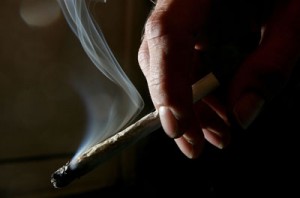 The idea could provide a working model to other places with legal marijuana. Each of the four states that has legalized, along with the District of Columbia, prohibits any public use.
The idea could provide a working model to other places with legal marijuana. Each of the four states that has legalized, along with the District of Columbia, prohibits any public use. President Barack Obama’s older daughter turned 17 July 4. The farmer’s son is also 17. Minors as young as 16 can marry in Washington, D.C., with their parents’ consent.
President Barack Obama’s older daughter turned 17 July 4. The farmer’s son is also 17. Minors as young as 16 can marry in Washington, D.C., with their parents’ consent.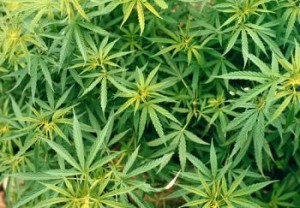
 The NFL is a notorious hard case when it comes to cannabis reform. Pro-marijuana advocates have pushed the league to ease its rules and stop penalizing players for low-level use, but while
The NFL is a notorious hard case when it comes to cannabis reform. Pro-marijuana advocates have pushed the league to ease its rules and stop penalizing players for low-level use, but while 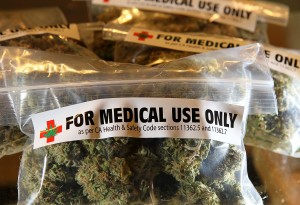 But bureaucracy still stands in the way. Even in the Golden State, where
But bureaucracy still stands in the way. Even in the Golden State, where  A follow-up law, passed by the state Legislature a few years later, enacted new statewide rules but still left the industry mostly to its own devices. In the decades since, critics of marijuana reform have pointed to the relative chaos of California’s MMJ system, saying it’s too easy for non-patients to get their hands on cannabis.
A follow-up law, passed by the state Legislature a few years later, enacted new statewide rules but still left the industry mostly to its own devices. In the decades since, critics of marijuana reform have pointed to the relative chaos of California’s MMJ system, saying it’s too easy for non-patients to get their hands on cannabis.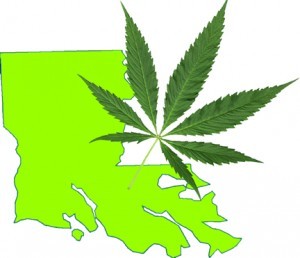 Republican Gov. Bobby Jindal, who is running for president, signed legislation in late June that
Republican Gov. Bobby Jindal, who is running for president, signed legislation in late June that  Jindal signed another bill in late June, this one loosening criminal penalties on marijuana offenders, especially those with only small-time offenses on their records.
Jindal signed another bill in late June, this one loosening criminal penalties on marijuana offenders, especially those with only small-time offenses on their records.  The state Senate voted in June to approve legislation that will
The state Senate voted in June to approve legislation that will  Lawmakers pushed the bill as a solution to the disparate arrest rates of
Lawmakers pushed the bill as a solution to the disparate arrest rates of  Those are the conclusions of a report issued in June by the United Nations. The study, which
Those are the conclusions of a report issued in June by the United Nations. The study, which 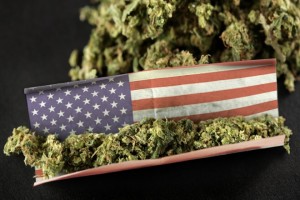 But these issues are far from mutually exclusive. They ride on similar currents of popular opinion, and if recent days are any indication, their time has come.
But these issues are far from mutually exclusive. They ride on similar currents of popular opinion, and if recent days are any indication, their time has come.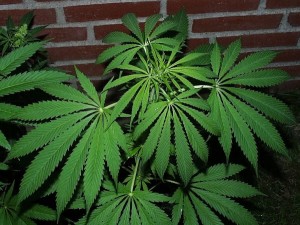 There have already been setbacks. Maine lawmakers recently voted down a bill that would have legalized marijuana for personal use and created a regulated industry to grow and sell the drug.
There have already been setbacks. Maine lawmakers recently voted down a bill that would have legalized marijuana for personal use and created a regulated industry to grow and sell the drug. Police in Portland, Ore., recently printed a brochure to
Police in Portland, Ore., recently printed a brochure to  The Marijuana Policy Project, the biggest national group campaigning for legalization, issued a voter guide in late June that rated candidates on
The Marijuana Policy Project, the biggest national group campaigning for legalization, issued a voter guide in late June that rated candidates on  Other GOP candidates fared much worse. Most – including Donald Trump, Ben Carson, Jeb Bush, John Kasich, Ted Cruz, Carly Fiorina, Lindsey Graham, Mike Huckabee, Bobby Jindal, George Pataki, Scott Walker, and Marco Rubio – managed Cs or Ds. But New Jersey Gov. Chris Christie and former Pennsylvania Sen. Rick Santorum each received F grades. Both men publicly oppose cannabis reform and have promised to
Other GOP candidates fared much worse. Most – including Donald Trump, Ben Carson, Jeb Bush, John Kasich, Ted Cruz, Carly Fiorina, Lindsey Graham, Mike Huckabee, Bobby Jindal, George Pataki, Scott Walker, and Marco Rubio – managed Cs or Ds. But New Jersey Gov. Chris Christie and former Pennsylvania Sen. Rick Santorum each received F grades. Both men publicly oppose cannabis reform and have promised to  Sheriff’s deputies from three counties conducted the raids in late June, saying they found roughly
Sheriff’s deputies from three counties conducted the raids in late June, saying they found roughly 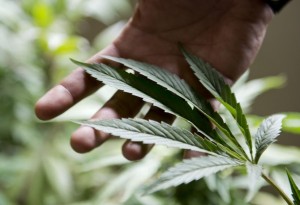 The raids continue despite new federal laws designed to protect patients, retailers, and growers from legal interference. Local and federal agencies have largely ignored the law, refusing to drop their efforts to stamp out marijuana completely.
The raids continue despite new federal laws designed to protect patients, retailers, and growers from legal interference. Local and federal agencies have largely ignored the law, refusing to drop their efforts to stamp out marijuana completely.